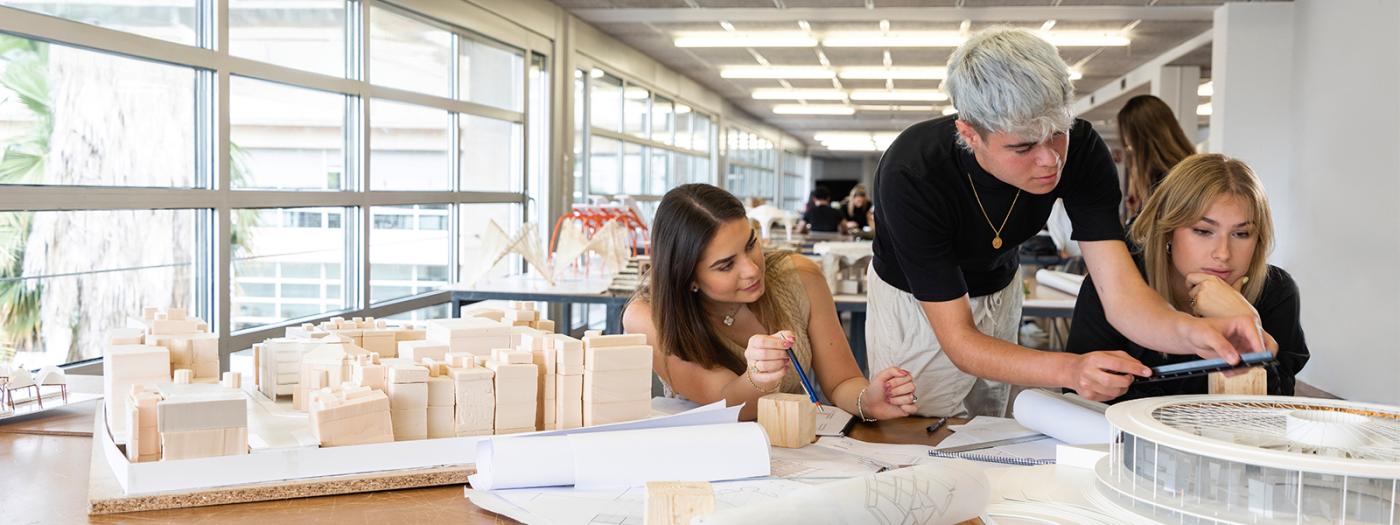To know the fundamentals of modern architecture in relation to the historical and social context, to the new trends of thought, and to the artistic principles established by the avant-garde artistic principles established by the avant-garde movements of the early twentieth century.
To deepen in the knowledge of architecture through the analysis of form and construction, with the aim of bringing to light the internal laws of order.
Identify the works, manifestos, and main characters, placing them in their temporal and geographical environment.
Structure the knowledge of the history of architecture, art, and thought.
Learn to search, compare, and evaluate documentation, in different sources and formats.
Extract main ideas, relate knowledge, share and contribute information in the process of individual and group work.
Curiosity, initiative to promote and to be part of in the architectural and artistic experience.
Develop a structured speech on the topics of study, in oral, written, and graphical formats.
Ability to draw with rigor, to use discipline-specific language with precision, and to generate new documentation from the analysis.
This second year lays the foundations for the knowledge of the different processes, examples and locations of modern architecture.
The artistic principles promoted by the avant-garde movements of the 20th century lay the foundations for a new perception of form.
The different artistic movements, their plastic expressions, their manifestos, and their influence on architecture (building and city) will be studied.
The diversity of approaches and formats is encouraged in order to favor a plural and critical reading of the history of architecture. Also, that each student will acquire his own encyclopedia of examples, to which to refer and with which to develop the exercise of the project and build their own thinking.
The year is structured in five blocks, to each of which two teaching weeks are allocated. The different themes that affect this period of change are dealt with illustrated and different historical, artistic and architectural facts.
The blocks are:
1.A new perception of form
2.Object architecture: Materials
3.Craftsmanship versus Industrialization
4.New ways of Living and Working
5.Cities, Landscapes and Infrastructures.
In each of the blocks we will advance, in parallel to the knowledge of the different architectural episodes, with the understanding of the historical contexts, the deepening of the thought and the plastic strategies that underlie them.
Each of the thematic blocks is organized around three fundamental axes: lectures, specific exercises born from the contents, and a practice that extends throughout the course. The learning process is complemented by visits to exhibitions and architecture of the period being studied in the city, thus encouraging direct experience of architecture, observation and a critical spirit.
Real events
Master Class
Exams
Internal / external reports
Exercices, problems, practices
Projects
Group / individual presentations
Self-evaluation
Class participation
Jury Corrections
